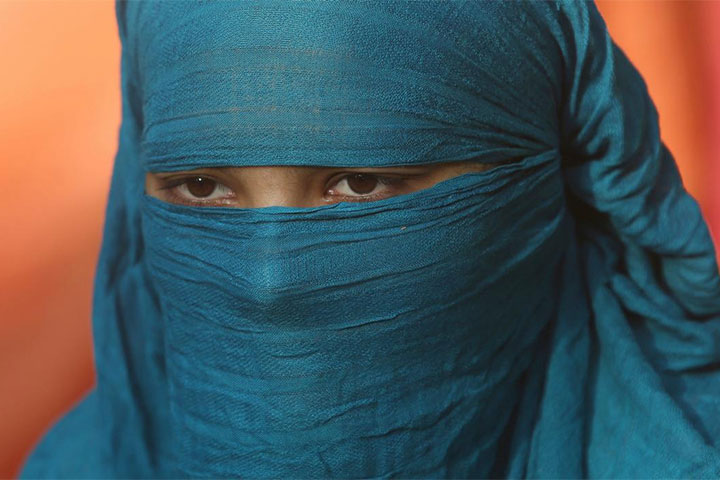Why underage marriages are still prevalent in Pakistan – RTV

The recent marriage of a 5-year-old girl in Pakistan's western province of Baluchistan has reignited debate over child protection, and the role of hard-line clergy in family matters.
In October, two men in Pakistan's Baluchistan province were arrested after police were tipped off that a 5-year-old girl had been forced into a marriage contract. The girl's uncle said that a local man had insisted the girl marry his son, and forced her father to accept a marriage contract. “We insisted that she is too young to contract a marriage,” the girl's uncle told DW, adding that the exchange between the two men had been filmed and then reported to police. The local police chief said those responsible for arranging the marriage had been arrested, but the case was not closed. “We are still trying to trace the cleric who performed the religious ceremony of the marriage contract,” he said.
This is not an isolated incident. According to UNICEF, Pakistan has nearly 19 million child brides. The UN children's agency estimates that around 4.6 million were married before the age of 15 and 18.9 million before they turned 18.
Child marriage widespread in Pakistan's tribal areas
Tahira Habib from the Lahore-based Human Rights Commission of Pakistan told DW that she had received reports of 99 cases of underage marriage in 2022. “But this is just the tip of the iceberg as very few such cases are reported, because reporting them would stigmatize the family that does so,” she said.
According to Habib, the country's tribal areas have the most cases of underage marriage.
Yasmin Lehri, a former lawmaker from Baluchistan's capital Quetta, said almost all girls in rural and tribal areas of the province were married before the age of 18. “In urban areas, because of growing awareness, girls are married at 18 or older […] but in the rest of the province the situation is very grim,” she said.
Lehri explained that poverty and economic factors played a significant role, with young girls often exchanged between families to work as laborers
Religious parties oppose setting minimum marriage age
Across Pakistan, civil society has been at the forefront of fighting to end child marriage, pushing for tougher laws and working closely with communities, authorities and religious groups to change attitudes.
Pakistani lawmaker Kishwar Zehra said the country's religious right was the biggest opposition to a law stipulating a minimum marriage age. “When a bill setting an age limit was presented in the national assembly's committee, it was strongly opposed by religious-minded lawmakers,” she told DW.
Maulana Sherani, a former chairman of the Council of Islamic Ideology, has publicly opposed any law setting the minimum age of marriage for girls. The council advises the government on the compatibility of legislation with Islam.
In 2014, the council declared child marriage restraint laws “un-Islamic,” triggering outrage from civil society and media.
When a bill establishing a minimum age was presented in the Baluchistan assembly, religious parties also opposed it, said former lawyer Lehri.
Samia Raheel Qazi, a former lawmaker, said the minimum age for marriage for girls should be 18, and that “a massive awareness campaign is needed to root it out, instead of blaming religion and advocating Western values.”
This “Eyes on Trafficking” story is reprinted from its original online location.
 ABOUT PBJ LEARNING
ABOUT PBJ LEARNING
PBJ Learning is a leading provider of online human trafficking training, focusing on awareness and prevention education. Their interactive Human Trafficking Essentials online course is used worldwide to educate professionals and individuals how to recognize human trafficking and how to respond to potential victims. Learn on any web browser (even your mobile phone) at any time.
More stories like this can be found in your PBJ Learning Knowledge Vault.
EYES ON TRAFFICKING
This “Eyes on Trafficking” story is reprinted from its original online location.
ABOUT PBJ LEARNING
PBJ Learning is a leading provider of online human trafficking training, focusing on awareness and prevention education. Their interactive Human Trafficking Essentials online course is used worldwide to educate professionals and individuals how to recognize human trafficking and how to respond to potential victims. Learn on any web browser (even your mobile phone) at any time.
More stories like this can be found in your PBJ Learning Knowledge Vault.
